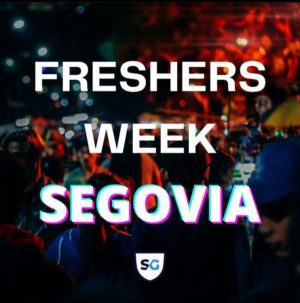Lately, Identity has been at the center of politics: Critical Race Theory, Black Lives Matter, hate crimes against Asians, and the LGBT+ community. We live in a diverse world and, as immigration continues to grow, and as our globalized world becomes ever more global, we are all looking to establish our identity in order to fit in such diverse societies. This is an important process and should not be taken lightly. It is important because it defines your sense of belonging, where you come from, and where you are going. Self-identity could even determine your sense of self-worth and the strength of your character.
When you determine and construct your identity, you are reassuring yourself that there is a place in the world for you, and that your life has a purpose.
But, what should we be basing our identity on? Race? Skin color? Religion? Nationality? Ethnicity? But how can these traits, which we have no control over, actually define us? What if… we stopped placing ourselves in boxes and started basing our identities and self-worth on ethical principles that transcend faith, skin color, and ethnicity? Identity as we know it separates us, otherizes the rest of the population, promotes hatred. Basing our identities on principles and values can help reduce the amount of hate in the world so we can finally start seeing each other by our similarities instead of our differences.
To otherize is to “view or treat (a person or group of people) as intrinsically different from and alien to oneself.” Sally Kohn, in her book The Opposite of Hate, explains how Otherizing leads to cruelty and hate. As soon as we identify too strongly to a particular group of people, we might start making choices- believing that the other group- everyone else who does not think or look like you- is less; less. It also dehumanizes the others- somehow they become unworthy. This made it easy for people to treat Blacks as slaves because they were viewed as Others, as unworthy, as less than humans. It becomes much too common and it is much too easy to use identity as a way to oppress and marginalize groups of people based on social constructs.
However, as biologist Robert Sapolsky, the author of several books on human behavior, writes, “Humans may be hardwired to get edgy around the Other, but our views on who falls into that category are decidedly malleable.” Which means hate is malleable, too. We can decide for ourselves to belong to a broader group of people. We can decide to not use our skin color, religion, nationality or sexual orientation to see ourselves in others. In this sense, if we broaden our identities, the less groups of people will fall into Others, the less hate will there be in this world.
In her book, The Power of Ethics, Lisa Sweetingham makes a strong case for Ethics and Principles. She explains how today’s world is complicated, boundaries are blurry, and our decisions will impact many others in ways we can hardly imagine. This is not hard to imagine. Images and videos that have gone viral have started social movements and made court decisions. Besides this, we are living in a world of misinformation, and we are asked to make decisions on the fly. Sweetingham asks for all of us to identify with ethical principles and make ethical decisions in the name of Justice and Peace. While there may be alternative facts, “There is no such thing as alternatively factual ethics.” If we base our decisions on our ethical principles, we will be making choices that promote peace and place humanity above everything else. And our decisions do matter. As Sweetingham explains, “Our decisions shape our legacy. How we handle our periods of recovery— and others’— defines our identity, telling the world what our principles are and how we apply them.” Our choices will become part of our identity and our legacy.
Finally, Kwame Anthony Appiah questions whether one’s cultural or social identity should be expanded to make for a more holistic way of viewing ourselves and the identities of others. He details in his book The Ethics of Identity, how collective identities such as race, ethnicity, nationality, religion, gender, sexuality get in the way of other things that we value such as family, friendship, kindness, generosity, honesty, and altruism. Do these collective identities constrain our freedom and our ability to make an individual life?
All of this said, it is not to say that our past, culture, and traditions do not matter. They matter. It is important to honor where we came from and the things that we hold close to our hearts. Let’s not forget that the first thing Africans were stripped of when they were enslaved were their identities. They were robbed of their language, their religion, their traditions, and their homes. Their tribes. They were enslaved because of it. But the collective identities of race and religion, ultimately social constructs, allowed this to happen for centuries. It is still happening. Immigrants are treated inhumanely because they are foreign, Others. Let’s choose wisely. This is an invitation to ponder who you want to become, what will you use as the compass for your decisions.
As Victor Hugo once said in his masterpiece, Les Miserables, “Humanity is identity. All men are made of the same clay. There is no difference, here below, at least, in predestination. The same shadow in front, the same flesh in the present, the same ashes afterwards. But ignorance, mingled with the human paste, blackens it. This incurable blackness takes possession of the interior of a man and is there converted into evil.”







